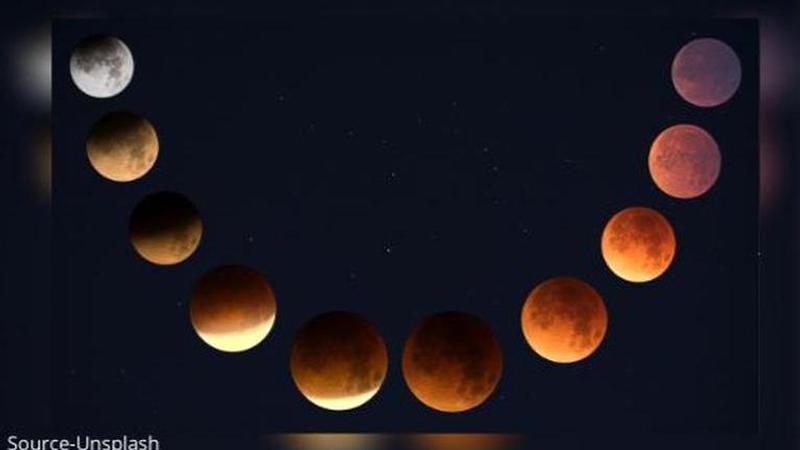Published 15:34 IST, July 3rd 2020
Full Moon Eclipse: What time will the lunar eclipse occur & which planets will be visible?
The July Lunar Eclipse is around the corner and will be visible from many countries across the globe. Here is everything you need to know about the eclipse.

Skywatchers are bracing themselves for the upcoming July Lunar Eclipse of 2020. The last lunar eclipse occurred on June 5. It was second of the four penumbral eclipses that are set to occur in 2020. Here is everything you need to know about the July lunar eclipse.
Source: Unsplash
July Lunar Eclipse timings
The July Lunar Eclipse will unveil itself for people across India on July 5. The eclipse will commence at 8:37 AM IST and will climax at 11:22 AM IST on the same day. At 9:59 AM IST, the penumbral eclipse will reach its peak.
Source: NASA
Details of the July Lunar Eclipse
A lunar eclipse occurs when the moon is on the opposite side of the Earth from the sun. The lunar eclipse occurs when the moon passes through Earth's shadow. However, a partial penumbral eclipse occurs when the earth comes between the sun and the full moon. However, in this case, the full moon won't be passing through Earth's dark inner shadow, which is known as the umbra. Instead, on July 5 the full moon will go through Earth's outer and lighter shadow which is known as the penumbra.
Will Jupiter be visible too?
It has been confirmed by NASA that while the eclipse is happening, observes will get to see a bright Jupiter as well from some parts of the United States such as New York City. Jupiter and the full moon will be in conjunction at 12:32 AM PT which is 21:38 GMT. This means that both the full moon and Jupiter will share the same celestial longitude.
As per a science portal, the full moon and Jupiter will only be about 2 degrees apart. Both Jupiter and the penumbral moon will be in the constellation Sagittarius. Accompanying the full moon and Jupiter in the sky will be Saturn which will appear to the left of the moon and Jupiter.
Why is it known as Buck Moon and Thunder Moon?
Traditionally, the full moon of July is also known as the Buck Moon. It is named so after the mid-summer, when male deers called bucks, grow their new antlers. In addition, the July lunar eclipse is also known as Thunder Moon, as thunderstorms are common in this month in many parts of the world.
The name Thunder Moon to the July Lunar Eclipse was given by the Native Americans. According to the reports of a media portal Ojibwe tribe also called it the Raspberry Moon. The Cree tribe of Canada called it the Feather Moulting Moon, as some birds start to moult their feathers and hair in the summer.
Source: NASA
Updated 15:34 IST, July 3rd 2020






